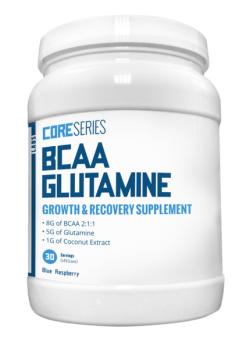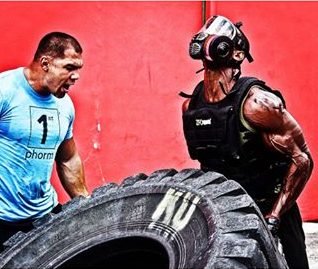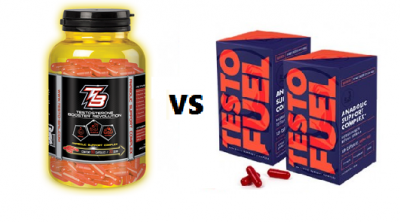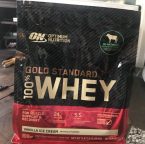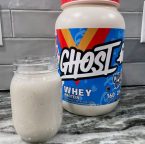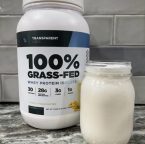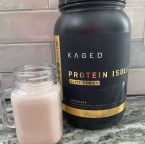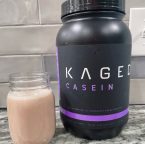If BCAAs and whey protein are so important in building muscle, then why are the two often sold separately?’
This question has baffled both gym newbies and veteran bodybuilders alike for ages. This time, however, we’ll attempt to put to rest the great debate between whey protein and BCAA by explaining the main differences.
By the end of the article, you will have the knowledge to determine whether BCAA or whey protein is the right product for you.
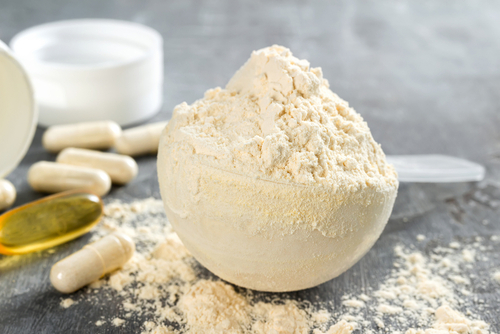
BCAA vs Whey Protein – Which is Better?
If you would put the two together in a cage and make them duke it out, whey protein wins, hands down. It’s the same thing with athletes, bodybuilders and gym goers- whey protein is an absolute must if you want to improve, performance-wise.
Remember the saying, ‘protein is king’ when it comes to workout supplements? This also holds true in the BCAA vs protein argument. A simple explanation is that protein (in whey form) benefits the body greatly and does a lot more things than BCAAs (branched-chain amino acids) do.
Think of whey protein as your main source of supplementation and BCAAs as the sidekick that complements protein really well. That said, it’s better to start with whey protein and add BCAAs as you go along than the other way around. You can get more out of protein than essential amino acids.
However, don’t think of it as an either-or type of thing. You can stack protein and BCAAs together to get a massive boost in the nutrition department or when you’re trying to take your muscles to the next level. If time is of the essence and there’s plenty more work, then by all means, go for the BCAA-protein combo.
The only exception to the rule is when you’re trying to slim down and stay in shape, which is the opposite of bulking up. In this case, you probably won’t need the extra amino acids and might benefit more with a good fat burner product.
As a word of advice, you should spread out the two and have them at different times of the day. This method helps you in several ways- one, you get a sustained release of nutrients, and two, it won’t feel like a chore to down one huge bucket. In addition, your gut won’t suffer and you won’t experience discomfort.
Your pre-workout option should be the BCAAs as they help with endurance and energy, which equals greater workload and bigger muscles. Whey protein is ideally for post-workout and recovery, where fuel is needed for repairing muscles.
Related: 15 Best BCAA Supplements on the Market
Related: The 15 Best Whey Protein Isolate Powders
Why Take Whey Protein?
Protein is a staple part of any serious athlete, fitness enthusiast and bodybuilder’s diet. As it stands, whey protein is a derivative of many protein supplements on the market and a hugely popular one at that.
You see, whey protein is well-rounded in that it provides the whole amino acid profile per serving. It’s not lacking in the protein department either- you typically can get anywhere between 15 to 25 grams, depending on the product. Theoretically, you may never have to combine whey protein with other workout supplements as it stands well on its own.
Protein plays a vital role in muscle growth, especially during post-workout periods. Most whey protein shakes are convenient because they give you an extra helping of protein aside from the ones you’re getting from your daily meals. You can also bring them along or pre-mix the powder into a bottle with iced water for on-the-go nutrition.
You probably won’t get enough protein just by eating, but with whey protein supplements, the problem is solved. This saves you time (from having to cook and chew all those chicken) and eliminates the chances of unwanted ingredients (such as oil and unhealthy fat) getting into your body.
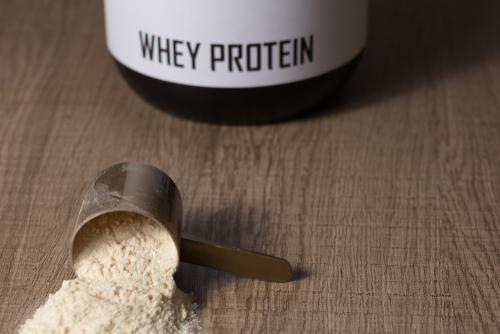
Benefits of Whey Protein Shakes
Here’s a quick rundown of benefits you get from whey:
- Quick digest protein for a timely performance boost
- Protein satiates and curbs cravings
- Higher protein intake can help burn fat
- Less recovery time and muscle ache
How Should You Take Whey?
There’s very little debate on when you should take whey protein powders, but the actual timing might be different for every person.
While we all agree that whey protein should be taken post-workout, some people like to take it immediately after cool down, while others wait an hour or until they get home to prepare and drink the shake. Honestly speaking, there’s no correct way to take it, but what’s important is that you follow through.
Around 20g to 25g should be enough for regular gym sessions, but if your goal is to lose weight or burn fat, then you can take whey at 15g to 20g. Make sure to look for a product that has weight loss or fat-burning ingredients as well.
Then again, if you’re training to the max and need to achieve your goals in a short time, then we’d recommend an extra scoop of powder. For minimal fuss and prep, I’d just throw in a scoop with cold water or iced water and chug it down.
Are There Side Effects to Whey Protein?
The best whey protein supplement will have all the right ingredients at optimal dosage so you can get all the muscle growth support you need and whatnot. Also, the good news is that whey protein in general, is safe for consumption, albeit with a few exceptions.
Whey protein is a milk derivative, and if you have allergies to milk and its associated forms, then you’ll want to take a closer look at the label. Opt for vegan protein products to avoid side effects and still gain the benefits of more protein in your diet.
They say that the more protein the better, but this is simply not true. Too big a dose at any given time will lead to a stomach ache, and chances are that you’ll experience cramping in the process. Lastly, your gut could be overloaded trying to digest all that protein, which can lead to an imbalance.
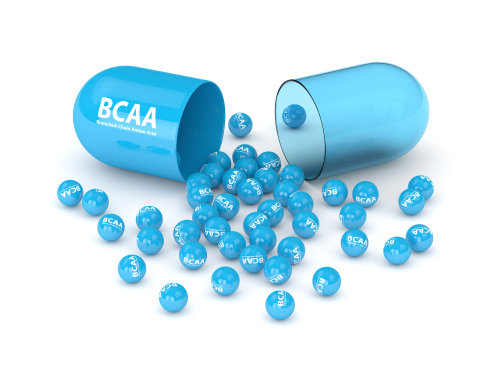
Why Take BCAAs?
BCAAs stands for Branched Chain Amino Acids, which are essential amino acids leucine, isoleucine and valine. What’s special about these compounds is that they’re really good for the body, but the only way to get them is through your diet.
Try as we might, sometimes the food we eat isn’t enough for our protein and amino acid needs, and this is where supplements come in. Nutritional timing plays a huge role in building muscle, thus the proliferation of BCAA products in the market.
BCAA supplements do exactly that- give your body essential amino acids to support new muscle tissue and repair existing ones. Unlike whey protein, you won’t need much but you’ll escape the hunger zone that comes whenever you finish training.
Benefits of BCAA
Here’s a quick rundown of benefits you get from BCAAs:
- Gain a higher fatigue threshold
- Improved metabolism to demolish fat
- Supports muscle protein synthesis while preventing muscle wasting
- Faster recovery
- Help to reduce muscle soreness
If you’d notice, the benefits of BCAAs and whey overlap in some points, especially where muscle is involved. This is because whey does have a good amount of amino acids aside from its protein content.
How Should You Take BCAAs?
A regular individual will need somewhere between 5 to 7 grams to support muscle growth and facilitate optimal muscle recovery. An athlete or someone who engages in regular and strenuous workouts and activities will definitely need more.
Most BCAA supplements come in at a scoop per serving, which should give you everything you need to get a productive gym session. For high intensity workouts, an extra scoop is more than welcome.
You can take BCAAs before or after working out, depending on your goals. If during, you’ll find greater energy and a higher level of performance, while taking it after means you reap the maximum results of your training. Performance athletes and pro bodybuilders tend to have it prior or during training, but a post-workout shake is fine if you don’t want to overthink.
Are There Side Effects to BCAAs?
Much like whey, BCAAs are considered safe to take and do not produce an adverse effect on most people. There’s still the matter of allergies and intolerances though. Sometimes an ingredient would cause a stomach issue, such as bloating and general discomfort.
Products that use casein have a higher chance of causing dairy-related problems, but if you can process milk then there’s nothing to worry about. Lastly, you’ll want to follow the manufacturer’s instructions to avoid overdosing. It’s important to know that too much can put a risk to your health.
The Bottom Line
Whey protein and BCAAs are a good match for each other. Combined, these supplements can empower you to reach a fitness or bodybuilding goal and provide very satisfactory results. There’s an overlap in terms of ingredients and timing (pre and post-workout), but you can just work through that by spreading your shakes out.
People who engage in HIIT or high-intensity training should definitely take BCAA along with whey protein for maximum muscle growth and performance. However, if you only have room for one, then we’d suggest you go for whey protein 100% Whey.

Ryan is a former college wrestler and lifelong fitness fanatic. He has run half marathons, done mud runs, placed in body transformation contests, coached wrestling, and now coaches girls’ soccer. Not to mention he has also tried literally hundreds of supplements over the years and has a vast and thorough supplement knowledge. He has written for Muscle & Strength, Testosterone Junkie, The Sport Review and other publications. He is also the editor-in-chief of this website and has over 25 years of experience in the fitness industry. Feel free to connect with him on his LinkedIn page below.

